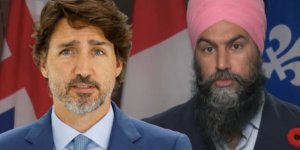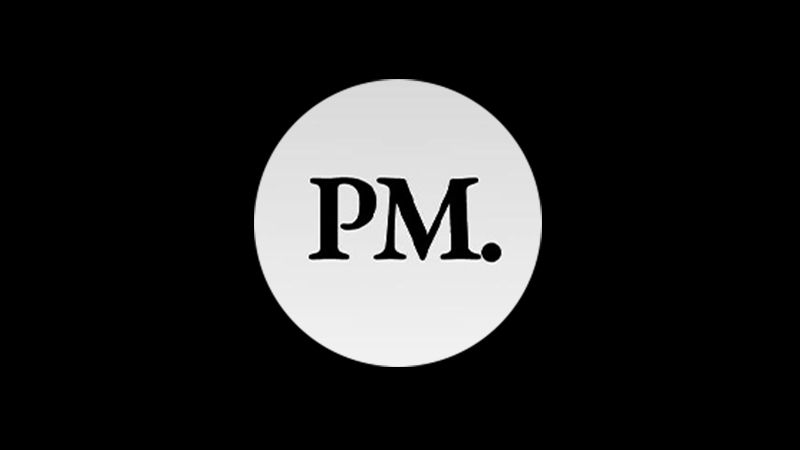Liberal MPs say Trudeau has pushed party 'ultra left' with NDP deal
View attachment 12993
Which one is which again?
Question Period in the House of Commons is the longest running farce in Canadian history but the slapstick hit new highs this week when NDP Leader Jagmeet Singh questioned Prime Minister Justin Trudeau on the contents of the impending budget.
Will the government commit to the housing and dental-care policies the NDP has been championing, Singh asked, wide-eyed.
In characteristic fashion, Trudeau didn’t answer, beyond the usual blather about “having Canadians’ backs.”
But he didn’t need to. Singh knew the answers because, as he revealed at his press conference earlier in the day, he’d already been briefed about much of the budget’s contents.
It seems that if you want to know what’s really going on in Ottawa these days, talk to an NDP MP. Not only was Singh privy to the budget but at Wednesday’s caucus meeting, he shared the news with his MPs.
We are now in the bizarre situation where the NDP caucus is more informed, if not more enlightened, than Liberal MPs, who will receive their own budget briefing on Thursday morning, just hours before the budget is released.
One Liberal backbencher professed himself deeply unhappy. “How can that be right. That’s bullshit,” he said.
If you want to know what’s really going on in Ottawa these days, talk to an NDP MP

apple.news
The Liberal-NDP deal signed last month is in some ways heartening, even if neither party campaigned on its conditions in the last election (but that was sooo six months ago…and then factor in the 42 days it took Trudeau to recall Parliament… just in time for them to break for Christmas and New Year’s and such….).
But this particular agreement has some unusual quirks. Both parties agree on the guiding principle of “no surprises” and so it commits the government to providing briefings by public servants and ministers on policy matters related to the agreement, including the budget and legislation. “Briefings should be done in a timely fashion,” it states, “to allow for constructive feedback and discussion.”
Hence, Singh was briefed before the budget went to the printers — unlike Liberal MPs, who will have no recourse beyond resignation when they see the text.
Michael Wernick (WE Scandal Fame!), the
former clerk of the Privy Council, said the NDP is enjoying a major perk of being in government, apparently without signing up for the accountability conditions by which ministers, parliamentary secretaries, political staffers and public servants are obliged to abide.
The information conveyed to Singh is secret and requires clearance for all other groups. As former ministers will attest, before their appointment they are vetted in every fashion short of a cavity search to ensure they are not open to blackmail or other pressures. They also have to swear the oath of a privy councillor to maintain secrecy of cabinet deliberations.
None of that has applied to the NDP so far, though its officials say they would happily comply if asked.
The NDP makes the case that the information passed on was not the budget in its entirety and that during the pandemic all opposition leaders were given briefings that included confidential material. The budget measures will be made public soon and so the briefing does not constitute privileged information, the party maintains.
But that does Not hold water.
For one thing, the leaders of the Conservative party, Bloc Québécois and Green party would be within their rights to appeal to the Speaker of the House, claiming that their privilege to information has been infringed by this cozy, bilateral deal.
For another, there is a reason there is a budget lock-up for journalists and others to read the document before it is released — namely that the information is market sensitive and could be used to engage in insider trading.
The Liberals say that Trudeau and Singh had a “conversation” and that such consultations are “normal” between party leaders ahead of a budget, particularly in a minority parliament.
“There is nothing offensive about a deal that reinforces the idea that it is the confidence of the House that matters, but this feature (the briefings) does break new ground. It raises a lot of questions,” said Wernick.
Singh has twisted himself into a pretzel claiming the deal with the Liberals is not a coalition (It’s a non-coalition coalition). He used his advanced knowledge of what is in the budget to attack the Liberals for the imminent introduction of a tax credit for energy companies to subsidize carbon capture efforts.
But it is too late to highlight the narcissism of small differences. The fates of the two parties are conjoined
The deal claims that both parties believe in Parliament’s role to hold the government to account and that nothing in the agreement undermines that critical function.
That is as farcical as Singh’s mock question in the House.
When you look from NDP to Liberal and from Liberal to NDP, it is already impossible to say which is which.
Ottawa grows ambitions to micromanage every area of Canadian life

apple.news
NDP Leader Jagmeet Singh should have pushed for a formal coalition with the Liberals. He could have been finance minister and taken full credit for Thursday’s budget, which, if he didn’t write it, is certainly being written to appease him.
The budget is expected to include a whole slate of costly and expansive NDP priorities that will combine with the Liberals’ own pricey policies to create not just big government, but mammoth government: a government that is not just big in terms of how much it spends, but in its ambition to federalize every area of Canadian life. The Rest at the above Link.
This is not the first time we’ve seen large increases in government spending. What seems genuinely new, at least by the standards of recent history, is not the size of government, but its nature. The relationship between the state and the average Canadian is changing.
Before, there were taxes and regulation, along with transfers and the usual web of government programs. Today, Ottawa wants to dictate what people say on the internet, where Canadians work (daycare good, oilsands bad), what kind of car they drive (hybrid good, electric better), what kind of medicine they should be prescribed (generic) and how companies should invest.
This has gone far beyond a welfare state ensuring the neediest are cared for. It isn’t just “crowding out” the private sector, it is crowding out individual decisions altogether.


 thepostmillennial.com
thepostmillennial.com

